Due to the hostilities, a lot of Donetsk Region residents left for safer regions of Ukraine. They work there to integrate into new communities, including the ones in the western regions, which received tens of thousands of residents from the front-line territories of eastern and southern Ukraine.
The word combination of Donetsk Residents lies as a brand mark on people
But not always and not everywhere this integration took place and is taking place without problems. Some residents of the Donetsk Region who evacuated to the western regions faced an additional problem: the prejudiced attitude of some residents toward the people of Donetsk. “These are those from Donetsk…” is sometimes heard disparagingly.
There was also a period (mostly in 2022-2023) when there were various horror stories about the people from Donetsk in the cities and villages of western and central Ukraine. For example, they rent housing but do not settle accounts with the owners, take valuable things out of local houses, and disappear.
Of course, most people understood that these are ordinary fakes and that geography (belonging to a region) does not determine a person’s decency.
But there were also many such people who believed these fictions. Under such conditions, it was more difficult for Donetsk residents to rent decent housing at an adequate price.
It is not known who and why spread such nonsense. However these fakes worked for a long time, forming local residents’ prejudiced attitude towards the residents of the Donetsk Region. And it took a lot of time (and even more effort from the people of Donetsk) to debunk these hostile information leaks.
An unexpected meeting in Lutsk
I, a correspondent of Karachun, met the journalist Halyna Vasenok long before she moved to the Volyn Region. And about the fact that she works in the newsroom of the popular online media in Lutsk (and beyond) Rayon.in.ua. I found out by accident: I read a post on her Facebook page. Then, I periodically visited her FB account. Halyna talked in detail about how she lives and works in her new place and shared her successes and plans.
Therefore, when we had the opportunity to visit Lutsk, we met with Halyna. Of course, we had a lot to talk about. The conversation was so interesting that I turned on the video camera.
Halyna Vasenok does not have a journalistic education. After graduating from the Donbas State Machine-Building Academy (Kramatorsk), she managed to work in her specialty. Maybe she would still work there, but she was forced to leave the settlement of Yasynuvata, which was captured by the separatists. It was summer 2014…
She said “goodbye” to journalism in her native Kurakhove, the newsroom of the local website Kuma.city was looking for a correspondent. Halyna decided to try herself in a new role.
She liked to write and take pictures, and work on the website. Journalism fascinated her more and more, and Halyna gladly mastered a new profession.
But the war began, which forced a sharp change in life for the second time. Together with her son, Halyna left for the Dnipropetrovsk Region. They rented housing in a small community where it was difficult to find a job. Standing in lines for a humanitarian worker and whining about the difficult fate of displaced people is not in the nature of Halyna Vasenok.
From Donetsk Region to Volyn Region
“I learned that a powerful national network of hyperlocal media, Rayon.in.ua, operates in Lutsk. I sent there a letter with a resume and links to the author’s publications. Soon, I received the answer: “We need you, come,” says Halyna.
She was not frightened by the unknown. On the contrary, she was attracted by new opportunities, working in a new editorial team in a new city. She did not experience any language problems: she knows Ukrainian no worse than residents of the western regions. Knows and loves it.
“You have to love everything: the language you use to communicate with people, the work you dedicate yourself to. And be sure to respect the people you live with. Then everything will turn out well!” Halyna is convinced.
In the Rayon.in.ua newsroom, she immediately became valued and … almost irreplaceable.
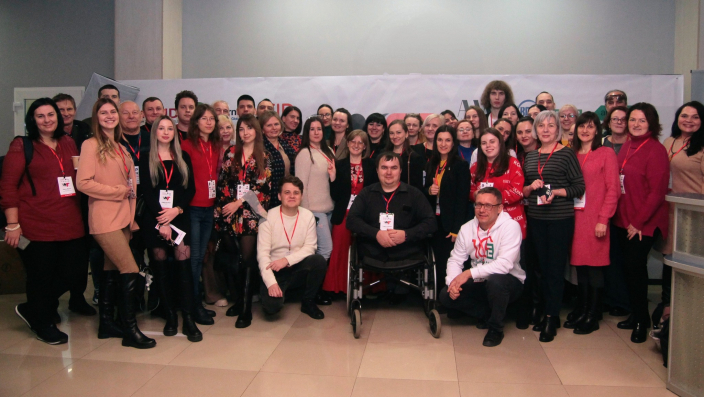
According to the head of innovative projects of SID Media Group, Nataliya Pakhaichuk, Halyna Vasenok proved herself well as an assistant in the grant department (she was initially invited to this position).
This is how Nataliya Pakhaichuk describes Halyna Vasenok’s work in the Rayon.in.ua newsroom:
“Last year at this time I was very sick. A lonely life that collapsed suddenly due to the war, overwork, exhausting trips, stress, and health collapsed. I felt that I couldn’t take it out anymore.
And then Halyna appeared.
This is how the history of the grant department of Rayon.in.ua began because two people are not one.
Halyna, who simply took over a huge part of my routine.
In those bundles of papers, stacks of documents, we found order, the finitude of the infinite, the joy of life, and most importantly, the shocking results of work for the entire newsroom.
But projects, reports, documentation – this was clearly not enough for Halyna‘s creative soul. The soul wanted creativity!
Therefore, in her free time, Halyna continued to do her favorite things: like writing and taking photos. And a little later, she also tried her hand as a television presenter of original programs. And again – success!
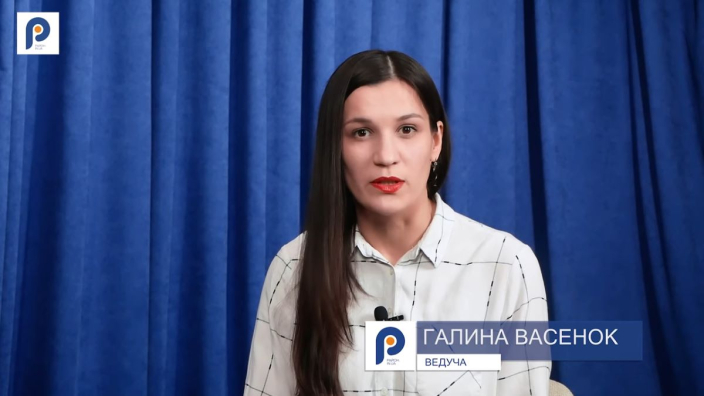
It is well known that success finds the persistent and hardworking. Truth, from the outside, sometimes it seems as if success is just a happy accident. But in fact, the path to it is long and uneasy.
What is the “secret” of Halyna Vasenok‘s professional and personal success?
The answer is her active life position!
She has not received “relocation” money for a long time because she works. Do not grumble about life and fate.
Perhaps that is why fate not only tests her character “for strength” but also sometimes sends generous gifts. Her Facebook account details two of them: work and the person she loves. Or like this: the person she loves and her work.
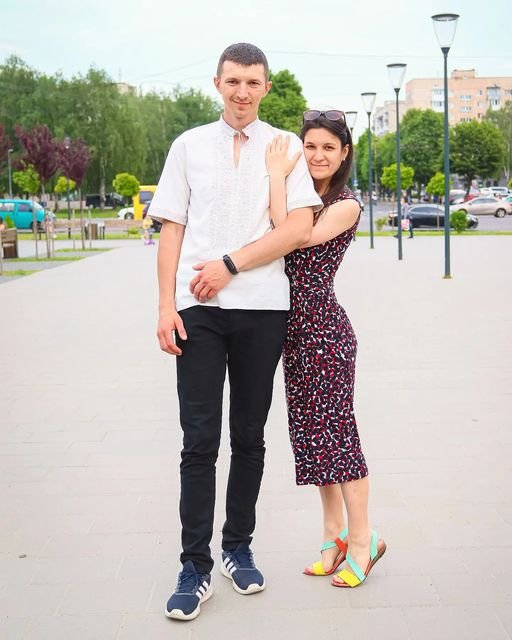
I found personal happiness in Volyn
Halyna Vasenok is an experienced donor.
“On World Donor Day, I wanted to count how much blood was donated for the needs of the Armed Forces, starting with the first donation in 2020,” she wrote on Facebook. “I didn’t find all the references because I donated blood twice in Kurakhove before full-scale war. So, I gave nine full servings of 450 milliliters, which is just over four liters of my blood.”
And then she specifies:
“Last year, I met a fighter undergoing treatment who had the same group and Rh as me. I saw in person one of those people for whom I am doing this. I approached him and said: “I am your donor; I also have a third minus.” It turned out that the man was wounded at Bakhmut, but he survived and got out of that hell.
It is possible that he was indeed transfused with my blood. We hugged tightly and thanked each other. After all, each of us does everything, and maybe a little more than we can, to defeat the aggressor,” Halyna concludes.
Her beloved Oleh, whom she met in line for blood donation, is also a long-term donor.
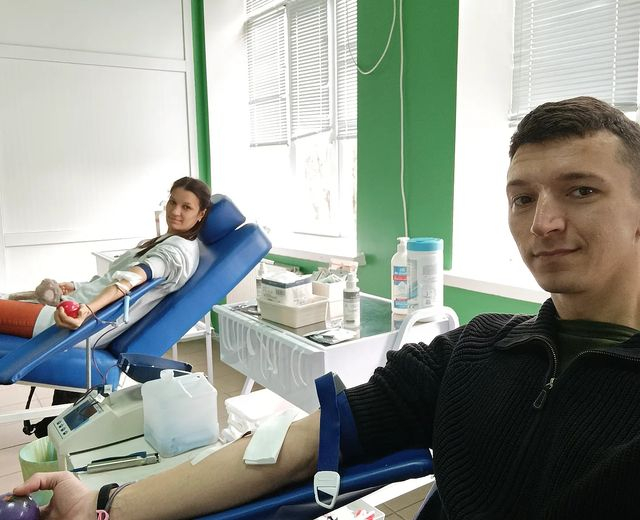
Since then, Oleh Lystopad [November in Ukrainian] has been both a friend and a father to a first-grader son and a like-minded person. The young couple share a passion for photography. In this craft, Oleh is more professional and experienced, so he willingly shares the secrets of photo art with Halyna.
However, after meeting Halyna, the subject of Oleh‘s photographs became noticeably narrower: portraits of his beloved predominate…
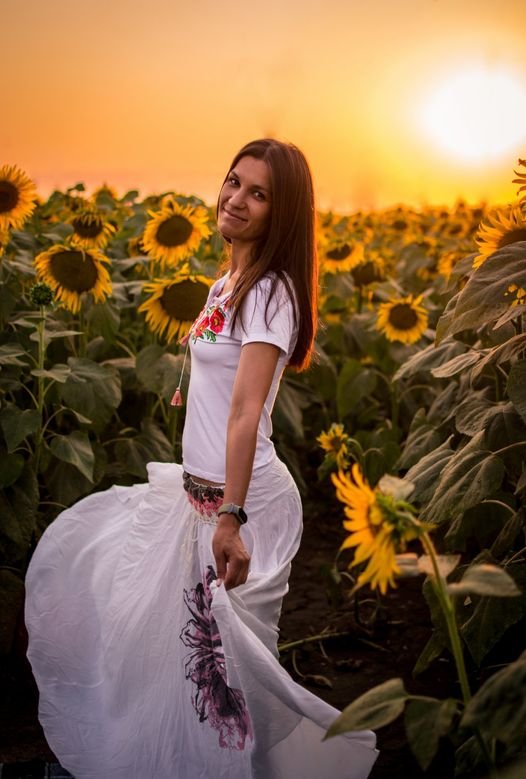
What does the Donetsk Region mean for you now?”
As you can see, Halyna Vasenok “planted strong roots” in the Volyn Region.
However, she does not forget about her native Donetsk Region: she calls acquaintances who, despite the proximity of the front line, still live in Kurakhove near the front. Her apartment was destroyed. What about the property – she does not know for sure.
“You have been living and working in Lutsk for a year and a half. Can you tell me how the people of the Volyn Region are mentally different from the people of Donetsk?
“When I went to Volyn, I expected to encounter some mental differences of the people there. All my knowledge about the west of Ukraine was mostly formed by anecdotes about “Westerners” and “Moscovites.” I will say frankly: I was afraid to go to Volyn. I have not even been to Kyiv before. However, I know the east-south well. As for the western regions… I was afraid that I would accidentally say something in russian, and if they didn’t beat me, they would surely condemn me. I expected some wary attitude. When she arrived, she saw the same Ukrainians living here. Of course, everywhere, the people here are different. But Ukrainians are the same everywhere: hardworking, hospitable, tolerant, sensitive. And I was very lucky with the work team, which welcomed me into their big journalistic family. Here, I learned a lot as a specialist.”
“How do local residents actually treat forced migrants from the Donetsk Region?”
“Once here, in the center of Lutsk, I heard the following (literally): “Donetsk residents are morons!” I couldn’t stand it. I take this person by the hand and lead them to the “Heroes of the Heavenly Hundred” photo booth located on the square. And I show a photo of those who died on the Maidan, who were originally from the Donetsk Region, Luhansk Region. I say, if Donetsk residents are morons, how could they defend the Maidan? It works better than any words.”
“Do you often remember your pre-war life, friends?”
“Of course, my soul aches for my native home. But you can’t always live in the past.”
“What is the Donetsk Region for you now?”
“The Donetsk Region is a totally broken heart of mine. But it still moves, hurts, and really wants to live.”
The publication uses photos from the personal archive of Halyna Vasenok
Author: Oleksandr Kulbaka, a Karachun online media journalist

 THE NATIONAL UNION OF
JOURNALISTS OF UKRAINE
THE NATIONAL UNION OF
JOURNALISTS OF UKRAINE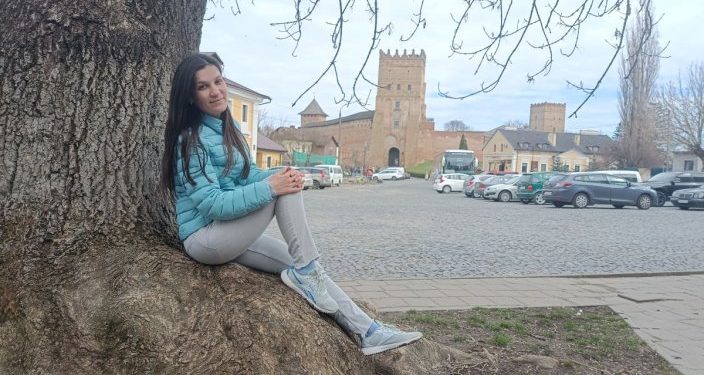
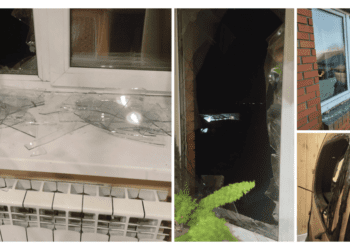
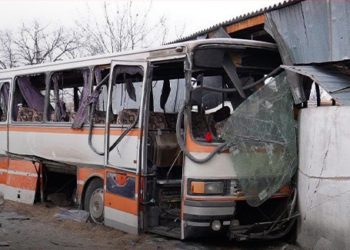














Discussion about this post